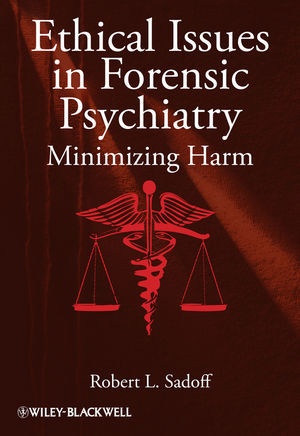Read more
Informationen zum Autor Robert L. Sadoff, M.D. is Clinical Professor of Psychiatry and Director of the Center for Studies in Social-Legal Psychiatry at the University of Pennsylvania School of Medicine. He is board certified in psychiatry, forensic psychiatry, and legal medicine, and has added qualifications in forensic psychiatry with the American Board of Psychiatry and Neurology. Dr. Sadoff is the author of over 100 articles in medical and legal journals, more than 30 chapters in other books, and has authored, edited, or coauthored 8 books, including Forensic Psychiatry: A Practical Guide for Lawyers and Psychiatrists, Psychiatry Malpractice: Cases and Comments for Clinicians and Mental Health Experts: Roles and Qualifications for Court. Dr. Sadoff has examined over 10,000 individuals charged with crimes during the past 40 years, and has testified for both the prosecution and defense in criminal cases and for the plaintiff and defense in civil cases in approximately 20 states and several federal jurisdictions. Dr. Sadoff is the recipient of numerous awards, including Best Doctors in America, Who's Who in the World, The Lifetime Achievement Award of the Philadelphia Psychiatric Society, the Nathaniel Winkelman Award, the Manfred Guttmacher Award from the American Psychiatric Association, the Philippe Pinel Award from the International Academy of Law and Mental Health, and the prestigious Isaac Ray Award from the American Psychiatric Association. He has also received the Earl Bond Award from the University of Pennsylvania as the Outstanding Teacher in Psychiatry for 1979, and the Dean's Award for Outstanding Contributions to Medicine at the University of Pennsylvania Medical School for 2008. Klappentext Ethical medical practice and treatment in psychiatry are based on the concept of first do no harm. However, this cannot, and does not, apply to forensic cases where there is no doctor-patient relationship and the forensic psychiatrist may indeed cause harm to the examinee. In this book, Robert Sadoff analyzes the ethical issues affecting forensic psychiatric practice, especially those promulgated by the American Academy of Psychiatry and the Law. Within those guidelines, he looks at individual bias, vulnerability of the examinee, and potential harm to the mental health professional. The book discusses each of the procedures of the forensic expert separately with respect to minimizing harm. It has been written with an international audience in mind and features chapters reviewing the European and UK perspectives, by Emanuele Valenti and John Baird, respectively. Robert Sadoff addresses the long-term harm that can be either avoided or minimized through careful planning and application of ethical principles. He is not advocating that the harm can be totally eliminated, because that is impossible in the adversarial system in which forensic psychiatrists work. However, there are means by which harm may be minimized if care is taken during the assessment, the report writing, and the testimony phase of the proceedings. The book develops the scope of forensic psychiatry from the standpoint of administrative, civil and criminal cases. It presents the practical issues involved in conducting forensic psychiatric assessments under various conditions plus special considerations, such as bias, minimizing harm, developing a therapeutic approach, and elaborating on various vulnerable individuals who are frequently examined in forensic cases. These include juveniles, mentally retarded, autistic, sexual assault victims, the elderly, the organically damaged, the psychotic, and mentally disabled prisoners. Immigrants are covered in a chapter by Solange Margery Bertoglia. The ethical issues in conducting forensic psychiatric examinations and presenting psychiatric testimony in court are examined and discussed. Cases illustrating the difficulties involved punctuate the present...

